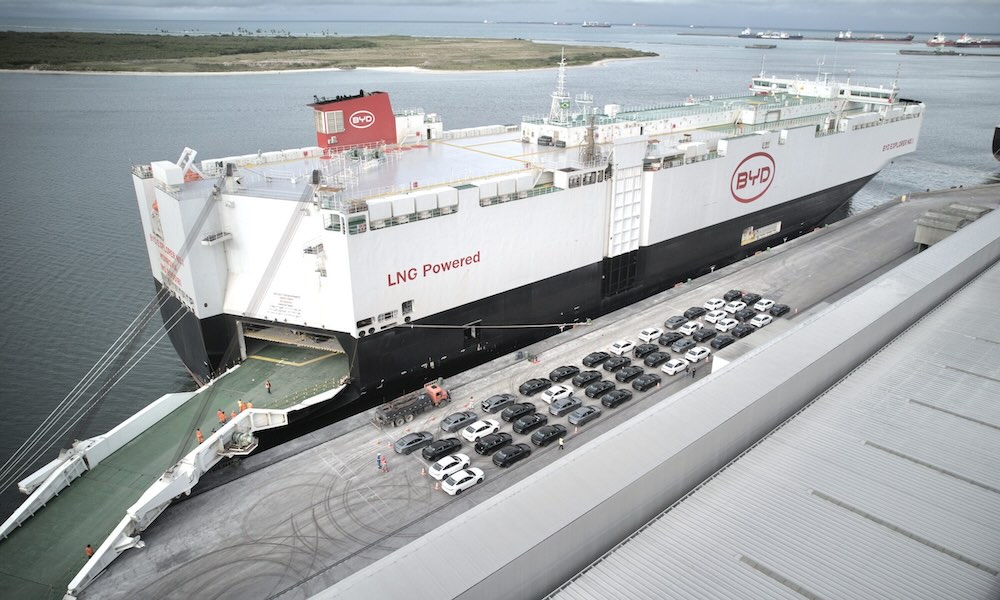Mexico pushes 50% tariff on China-built cars
Mexico Plans Major Tariff Hike on Chinese Cars

In a significant move, Mexico is set to more than double tariffs on vehicles imported from China and several other Asian nations, increasing duties from 20% to 50%. This proposal, recently submitted to Congress by President Claudia Sheinbaum, aims to protect Mexico’s automotive sector, which constitutes roughly 23% of the country’s manufacturing output. If approved, the tariff increase will apply to approximately $52 billion worth of imports from nations lacking free trade agreements with Mexico.
Strategic Protection for Domestic Industry
Economy Minister Marcelo Ebrard emphasized that the proposed tariffs are a necessary measure to safeguard Mexico’s automotive industry, which is vital to the national economy. He stated, “We have to protect it. One of the ways to protect it is to increase the tariffs that these light vehicles pay.” The government argues that these changes are crucial for preserving around 325,000 jobs in the industrial and manufacturing sectors that are at risk due to foreign competition.
In addition to vehicles, the proposed tariff hike will also affect steel, motorcycles, textiles, and toys, with new levies ranging from 10% to 50%. Most of Mexico’s auto imports originate from China, but the new tariffs will also target vehicles from India, Indonesia, Russia, South Korea, Thailand, and Turkey. Notably, vehicles from the United States and Canada will remain exempt from tariffs under the USMCA agreement, while Japanese and European brands benefit from existing trade deals.
China, which provides nearly 20% of the cars sold in Mexico, has responded with concerns about potential countermeasures. The Chinese commerce ministry has urged Mexico to reconsider its decision, highlighting the importance of their trade relationship. A spokesperson warned that China would “resolutely safeguard our own rights and interests in accordance with the actual situation.”
Broader Implications and Industry Reactions
Industry analysts suggest that this tariff increase not only aims to bolster Mexico’s domestic production but also aligns with pressures from the United States to limit Chinese industrial influence. Washington has been urging Mexico to prevent its market from serving as a “backdoor” for Chinese goods entering the U.S., where tariffs are significantly higher. Lars Jensen from Vespucci Maritime remarked that a potential Mexico-China trade conflict could adversely affect trade dynamics in the Pacific.
India to impose up to 30 per cent tariffs on some steel imports from China, Vietnam
The former Mexican ambassador to China, Jorge Guajardo, argued that the tariffs are primarily a response to domestic industry demands rather than external pressures from the U.S. He noted on LinkedIn, “These tariffs are in response to Mexican industry asking for them. They have nothing to do with the US.”
This tariff initiative is part of a broader review of over 1,400 imports from countries without trade agreements, as part of Mexico’s budget planning for 2026. The proposal is expected to be formally presented to Congress for approval early next year. This discussion emerges as the USMCA is set for review in 2026, marking a significant test for President Sheinbaum’s administration. Mexico’s actions mirror similar measures taken by Brazil, which plans to implement a unified 35% tariff on imported electric vehicles starting in July 2026, primarily impacting Chinese automakers.
